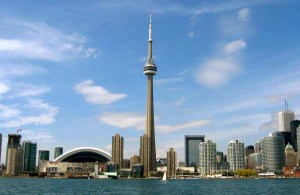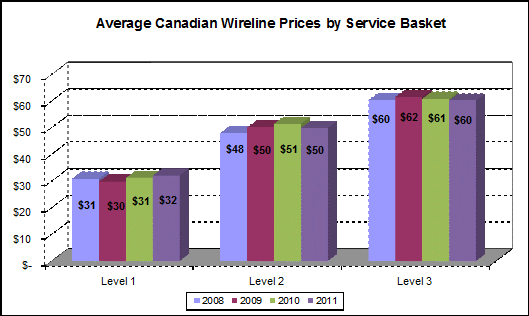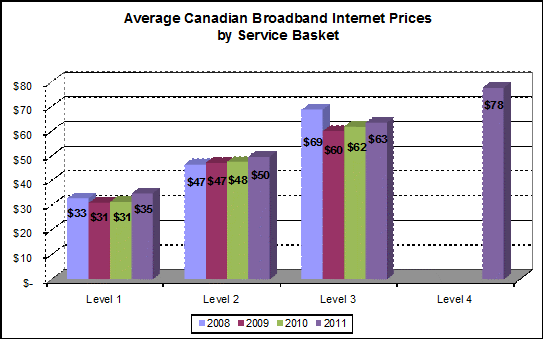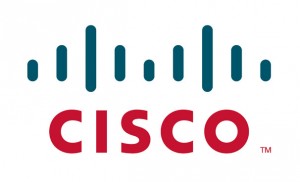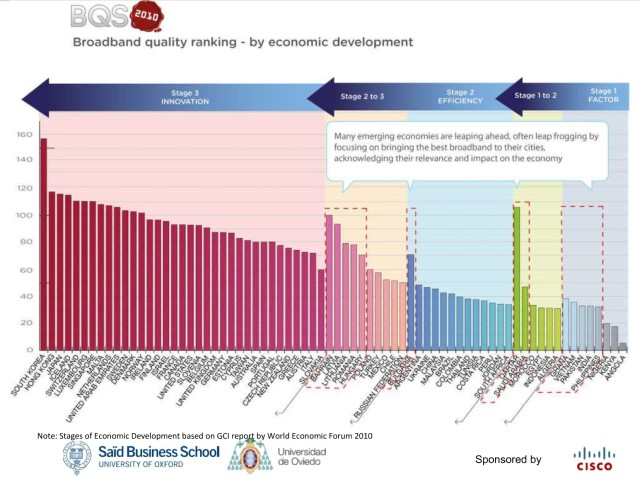Except for South Korea, nobody uses the Internet more than Canadians. That’s an important finding in a new report produced for Canada’s telecommunications regulator to better understand the current state of the broadband market in the country.
According to recent reports from the Organization for Economic Cooperation and Development, the country generates 2,288 terabytes of data traffic per month per 100,000 residents. That’s among the highest in the world and comes from avid web browsing, watching online video, and a love affair with smartphones.
But like many relationships, this one is also expensive. You pay all of the money you have to spare, and your provider delivers you just enough of a usage fix to keep you from running to Ottawa to demand change.
Canadian broadband pricing is in the top third of all OECD-measured nations, with the average price for High Speed Internet running $55.18. The average median price across all OECD members runs a lot less — $39.23 per month. If you want to pay less, you have to bundle your landline, cell phone, television, and Internet service with the same provider, or make due with a slow speed “lite user” plan, where average pricing had been running lower until this year.
The average monthly price of the Level 1 basket increased to roughly $35 in 2011, up considerably from $31 the previous year.
Similarly, average monthly price of the Level 2 basket increased this year as well to roughly $50, up from $48 last year. The average advertized download speed of the services included in the Level 2 basket is close to 6.5 Mbps, which is similar to the average speed in last year’s study.
The average monthly price of the Level 3 basket also increased slightly to $63, but still remains well below the 2008 price of $69 per month. The average advertized download speed of the services included in the Level 3 basket is roughly 14 Mbps, which is slightly higher than in last year’s study (where the average speed was 12.5 Mbps).
Lastly, the average price of the new Level 4 broadband service basket is roughly $78 per month. The advertized download speeds for the Level 4 broadband services included in the study range from 25 to 50 Mbps – the average is close to 30 Mbps.
Roughly half of the Canadian broadband service plans surveyed for this study included monthly usage caps. For those that do, they range from 1 to 13 GB on the Level 1 service basket – the average is 7 GB per month. The range for the Level 2 service basket is from 25 to 75 GB – the average is 55 GB per month. The range for the Level 3 service basket is from 75 to 125 GB – the average is just over 90 GB per month. There has been little change in these monthly usage caps, on average, compared to last year.
In the case of the new Level 4 broadband service basket, for those service providers applying data usage caps, the caps range from 75 to 250 GB per month – the average was close to 140 GB per month.
The Canadian pricing and usage study was developed by Wall Communications for the Canadian Radio-television and Telecommunications Commission. The best news for Canada? Your broadband pricing remains relatively stable, with some package pricing reducing the cost of the broadband component. Standalone service appears to have increased in price only slightly in many markets. Increased foreign investment in the wireless marketplace is shaking up wireless pricing, as the hegemony of Bell, Telus, Rogers, and Quebecor are under increasing competitive pressure. It’s a much sunnier outlook than what is taking place in the country to your south.
For Americans, pricing is headed in only one direction: up.


 Subscribe
Subscribe